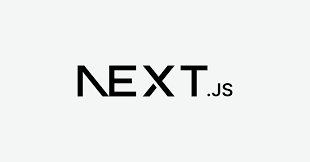Next.js: Why It’s the Future of Web Development and Its Top Alternatives
 Animesh Kumar
Animesh Kumar
Why Next.js?
Next.js is a powerful React framework that allows developers to build fast and user-friendly web applications. Here are some reasons why you should consider using Next.js:
1. Performance
Next.js optimizes performance out of the box. It pre-renders pages at build time (Static Generation) or request time (Server-Side Rendering), which results in faster load times and better user experience.
2. SEO Friendly
SEO is crucial for the visibility of your website. Next.js helps improve SEO by providing server-side rendering (SSR). SSR allows search engines to crawl the content of your pages more effectively, which can lead to higher rankings.
3. Static Site Generation (SSG)
Next.js supports Static Site Generation, which means you can generate HTML at build time and reuse it for each request. This can dramatically reduce load times for your pages and improve performance.
4. API Routes
Next.js comes with built-in API routes, allowing you to create API endpoints within your Next.js application. This simplifies the process of building a full-stack application with both frontend and backend in one project.
5. Image Optimization
Next.js provides an Image component that optimizes images on-demand. This means your images are served in the best format for the user's device, reducing load times and improving performance.
6. Developer Experience
Next.js offers a great developer experience with features like Hot Module Replacement (HMR), which updates your application as you edit the code without needing a full reload. This speeds up development and makes it more enjoyable.
7. Community and Ecosystem
Next.js has a large community and a rich ecosystem. You can find numerous plugins, examples, and resources to help you build your application efficiently.
Alternatives to Next.js
While Next.js is a great choice, it's important to know about alternatives:
1. Gatsby
Gatsby is another popular React framework focused on performance and SEO. It uses static site generation and has a strong plugin ecosystem. It's great for building static sites and content-heavy applications.
2. Create React App (CRA)
CRA is a tool to set up a new React application with no build configuration. It's great for beginners and small projects but lacks the advanced features of Next.js like SSR and SSG.
3. Nuxt.js
Nuxt.js is a framework for building Vue.js applications. If you prefer Vue over React, Nuxt.js is a solid choice with similar features to Next.js, including SSR and static site generation.
4. Sapper
Sapper is a framework for building Svelte applications. It offers features like SSR and static site generation, similar to Next.js but for Svelte.
5. Angular Universal
For those who prefer Angular, Angular Universal allows you to perform server-side rendering with Angular. It offers many of the same benefits as Next.js for Angular applications.
Why Choose Next.js Over Alternatives?
React Ecosystem: If you're already using React, Next.js seamlessly integrates with your existing React projects and libraries.
Full-Stack Capabilities: With built-in API routes, you can easily create full-stack applications without setting up a separate backend.
Flexibility: Next.js offers both SSR and SSG, giving you the flexibility to choose the best approach for each page in your application.
Community Support: A large and active community means you can find help and resources more easily.
Conclusion
Next.js is a robust and versatile framework for building modern web applications. Its performance, SEO benefits, and developer-friendly features make it a top choice for many developers. While there are alternatives like Gatsby, CRA, Nuxt.js, Sapper, and Angular Universal, Next.js stands out with its unique combination of features and strong React ecosystem support.
Liked reading?
Let me know in the comments section, and do like my blog & subscribe to my newsletter.
Subscribe to my newsletter
Read articles from Animesh Kumar directly inside your inbox. Subscribe to the newsletter, and don't miss out.
Written by

Animesh Kumar
Animesh Kumar
I’m a software developer who loves problem-solving, data structures, algorithms, and competitive coding. I’ve a keen interest in product development. I’m passionate about AI, ML, and Python. I love exploring new ideas and enjoy innovating with advanced tech. I am eager to learn and contribute effectively to teams.